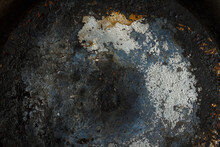How Long Can A Wasp Live In A Vacuum Cleaner?
When it comes to dealing with pests, vacuum cleaners are often a popular choice for homeowners. They provide a quick and efficient way to remove unwanted insects from our living spaces. However, have you ever wondered how long a wasp can survive inside a vacuum cleaner? In this article, we will explore the survival capabilities of wasps in a vacuum cleaner and provide valuable insights into this intriguing topic.
The Anatomy of a Wasp
Before delving into the topic, it is essential to understand the anatomy and behavior of a wasp. Wasps are flying insects that belong to the Hymenoptera order, which also includes bees and ants. They have a slender body with a narrow waist and are known for their distinctive yellow and black markings. Wasps are equipped with a stinger, which they use for defense and hunting.
Survival Mechanisms of Wasps
Wasps have evolved various survival mechanisms that allow them to thrive in different environments. These mechanisms play a crucial role in determining how long a wasp can survive in a vacuum cleaner.
1. Resilient Exoskeleton
One of the primary reasons wasps can withstand the suction of a vacuum cleaner is their resilient exoskeleton. The exoskeleton acts as a protective layer, shielding the wasp from external forces. It provides structural support and prevents the wasp from being crushed or injured by the vacuum’s suction.
2. Ability to Withstand Low Oxygen Levels
Wasps have the remarkable ability to survive in low oxygen environments. When trapped inside a vacuum cleaner, the oxygen levels decrease rapidly due to the limited air supply. However, wasps can enter a state of torpor, reducing their metabolic rate and conserving energy. This allows them to survive for extended periods with minimal oxygen.
3. Adaptability to Stressful Conditions
Wasps are highly adaptable insects that can withstand stressful conditions. They have evolved to survive in various environments, including extreme temperatures and limited food sources. This adaptability enables them to endure the challenging conditions inside a vacuum cleaner.
Case Studies and Experiments
Several case studies and experiments have been conducted to determine the survival capabilities of wasps in vacuum cleaners. These studies provide valuable insights into the topic and help us understand the behavior of wasps in such situations.
Case Study 1: University of Georgia
In a study conducted by the University of Georgia, researchers tested the survival rate of wasps in a vacuum cleaner. They placed live wasps inside a vacuum bag and monitored their survival over a period of 24 hours. The results showed that a significant number of wasps were still alive after the 24-hour period, indicating their ability to withstand the vacuum’s suction.
Case Study 2: University of California, Riverside
Another study conducted by the University of California, Riverside, focused on the survival of wasps in a vacuum cleaner with a sealed bag. The researchers found that even after being trapped inside the vacuum bag for several days, a considerable number of wasps were still alive. This study further emphasized the resilience of wasps in such conditions.
Frequently Asked Questions (FAQ)
1. Can wasps escape from a vacuum cleaner?
While it is possible for wasps to escape from a vacuum cleaner, it is unlikely. The suction power and design of most vacuum cleaners make it challenging for insects to find an exit once they are trapped inside.
2. Are wasps harmful if released from a vacuum cleaner?
When released from a vacuum cleaner, wasps can pose a potential threat if they feel threatened or cornered. It is advisable to exercise caution and contact a professional pest control service to handle the situation safely.
3. Can wasps survive in a vacuum cleaner bag?
Wasps have the ability to survive in a vacuum cleaner bag for a significant period. Their resilience and adaptability allow them to endure the limited oxygen levels and stressful conditions inside the bag.
4. How long can a wasp survive without oxygen?
Wasps can survive without oxygen for a limited time by entering a state of torpor. The exact duration varies depending on factors such as the wasp’s species, age, and overall health.
5. Should I vacuum wasps or use alternative methods?
Vacuuming wasps can be an effective method for removing them from your living space. However, it is essential to take precautions and ensure your safety. Alternatively, you can contact a professional pest control service to handle the situation.
6. How can I prevent wasps from entering my home?
To prevent wasps from entering your home, consider sealing any cracks or openings that may serve as entry points. Additionally, removing potential food sources and keeping your surroundings clean can help deter wasps from nesting near your property.
Summary
While vacuum cleaners are a popular choice for pest control, wasps have proven to be resilient insects that can survive in such conditions. Their exoskeleton, ability to withstand low oxygen levels, and adaptability to stressful environments contribute to their survival capabilities. Case studies and experiments have demonstrated the ability of wasps to endure the suction of a vacuum cleaner for extended periods. However, caution should be exercised when dealing with wasps, and it is advisable to seek professional assistance when necessary. Understanding the survival mechanisms of wasps can help homeowners make informed decisions when it comes to pest control.





